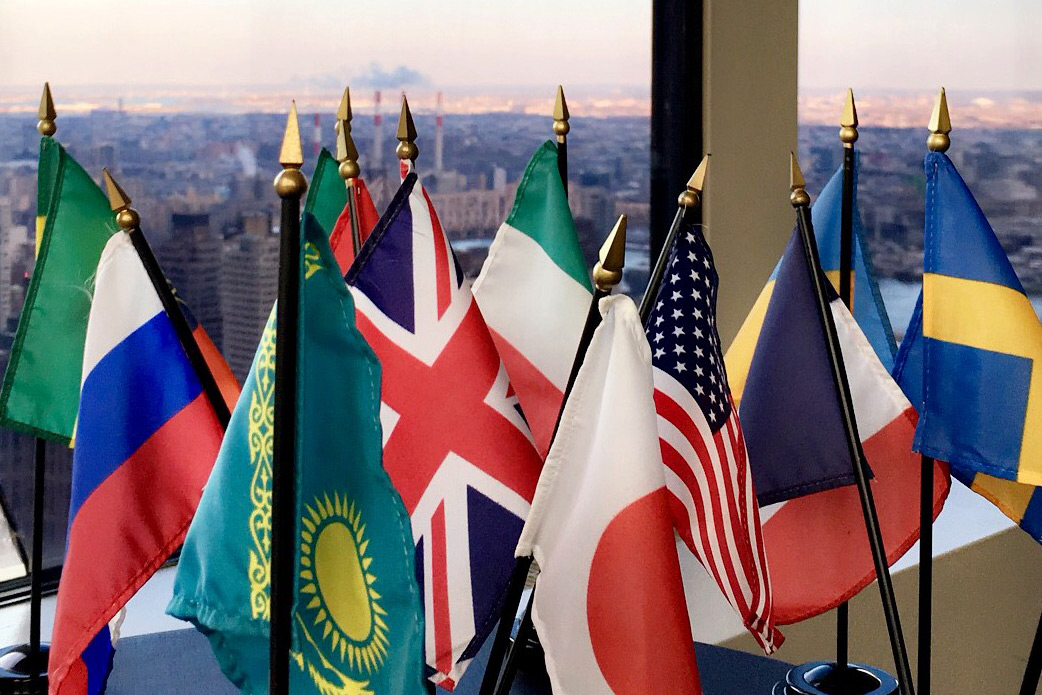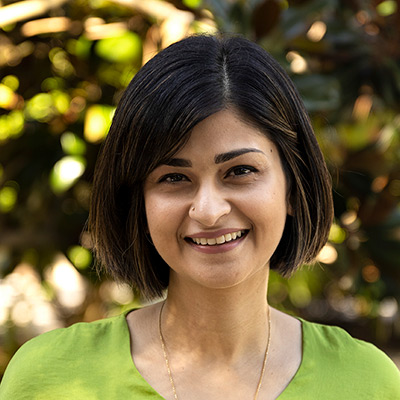
Flags of the member states of the United Nations. Photo: Geoffrey St. John ’19
Sidra Hamidi was just 7 years old when she moved with her family from Karachi, Pakistan, to the Chicago area.
“When you come to a new country when you’re young, you develop ways to figure out how to fit in and create connections,” she says. “But at the same time, you’re always a little bit of an outsider. So there’s always sort of a constant navigating and negotiating of who you are. And I think that’s fine. You don’t have to decide to stay in that box.
“When I was young it was hard,” she adds. “But now it’s like a superpower.”
Hamidi, assistant professor of political science, is bringing that power and an impressive resume to Eckerd College as one of 12 new tenure-track faculty members. Before coming to Eckerd, she was an assistant professor of political science at Stetson University in DeLand. She also was a Stanton Nuclear Security Fellow at the Center for International Security and Cooperation at Stanford University.

Sidra Hamidi, Ph.D.
Hamidi earned her undergraduate degree in political science at North Central College in Naperville, Illinois. “It’s a small liberal arts college like Eckerd,” she says, “and it’s where I got my passion for teaching.” She earned her master’s degree from the Committee on International Relations at the University of Chicago, and her Ph.D. from Northwestern University in 2018.
Her research has been published in the European Journal of International Relations, and her commentary has appeared in War on the Rocks, The Washington Post and E-International Relations. Her work also has been presented at the International Studies Association, the American Political Science Association, and the Program on International Politics, Economics and Security at the University of Chicago.
Along the way, she’s continued to deepen her interest in the study of international relations. “Why do leaders and states behave the way they do?” she asks herself and others.
It’s that curiosity she wants to spark in her students.
“I think, because of globalization, the world is getting increasingly smaller,” she says, “so that if some event happens around the globe, it’s not something that happens way out there. That event might very well have something in common with what’s happening here.
“We tend to think of people as being over there, but experiencing poverty, for instance, is something that happens everywhere.”












